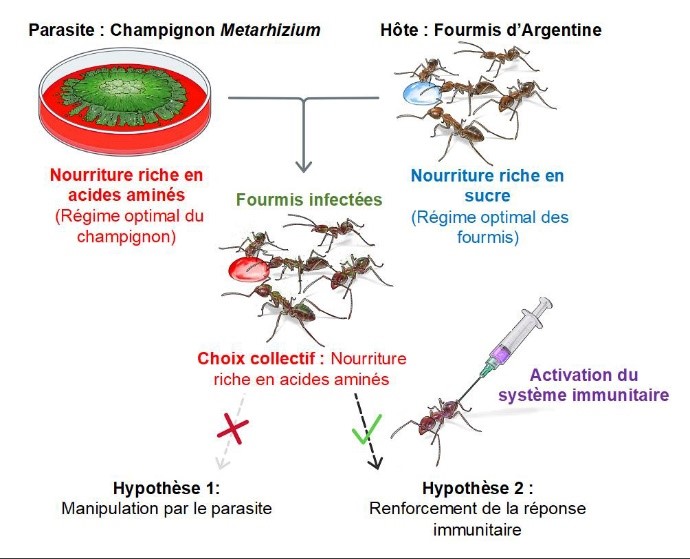In this study, Eniko Csata, Alfonso Pérez-Escudero, Emmanuel Laury, Gérard Latil and Audrey Dussutour (CRCA-CBI) and their collaborators studied the role of nutrition in the host-parasite system: the Argentine ant (Linepithema humile) and the entomopathogenic fungus (Metarhizium brunneum).
See also
Antoine WYSTRACH, winner of an ERC Consolidator !
15 July 2024
par webmaster
The CRCA Scientific Day took place on June 4!
13 July 2024
par webmaster
Dopamine enables us to select the events we want to remember
25 May 2024
par webmaster

